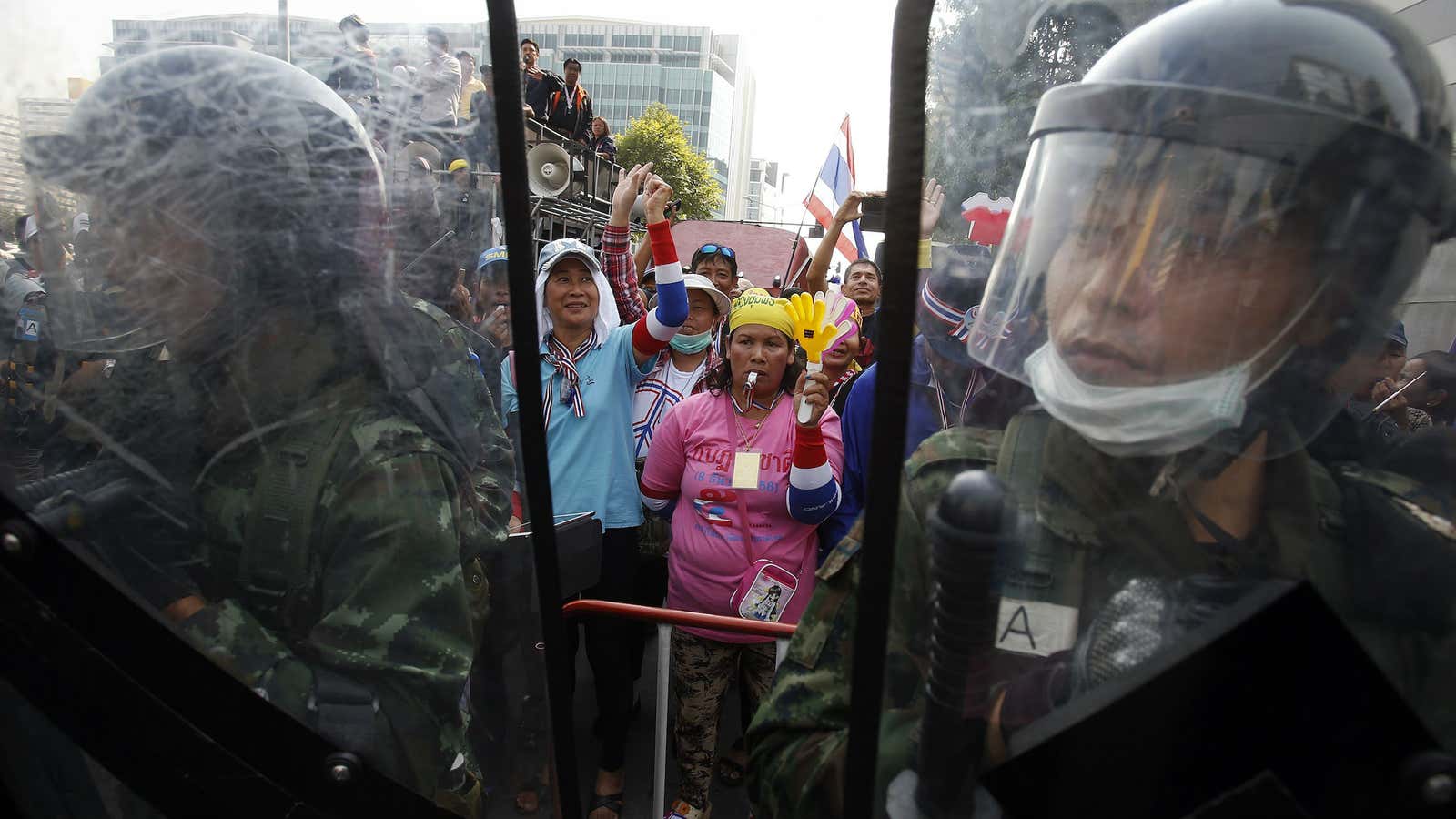Just when it looked like things couldn’t get any worse for Thai prime minister Yingluck Shinawatra, the Chinese government has pulled out of a deal to buy 1.2 million tonnes (1.32 million tons) of surplus rice that is languishing in government storehouses—the result of a disastrous subsidy plan that her enemies are trying to use to force her out of office.
Thailand is in the grips of a debilitating and intermittently violent political crisis, after months of protests by anti-government protesters who despise Yingluck and her brother, former PM Thaksin Shinawatra. An early election on Sunday was widely disrupted as protesters blocked access to polling stations; the opposition Democrat party, which boycotted the vote, is asking the Constitutional Court to annul the results.
The rice subsidy plan—part of a sweeping slate of government subsidy programs that Yingluck and Thaksin have showered on the rural voters that make up their base—has been a costly disaster, as Quartz has reported. The guarantee that the government would buy rice at above-market prices has gutted Thai rice exports, and created a 16 million tonne stockpile that will either be sold at an enormous loss or rot away. Thailand’s National Anti-Corruption Commission is conducting an investigation into Yingluck for her involvement in the subsidy scheme, which could lead to criminal charges or impeachment.
And at the very time when Yingluck needs the support of her political base, many of Thailand’s rice farmers aren’t getting paid what they were promised. That’s because a bond issue failed to raise sufficient funds, and her caretaker government can’t pass new budget measures until the political limbo is resolved.
Thailand has been trying to unload some of the surplus to other governments, and had been depending on an agreement to sell China 1.2 million tonnes of rice over several years. But the corruption probe has prompted China’s state-owned agricultural firm Beidahuang to back out of the deal, according to Thai commerce minister Niwatthamrong Bunsongphaisan. The government is still trying to flog its surplus rice—next week it will open a tender to sell 400,000 tonnes of rice, which could earn an estimated 10 billion baht for the embattled government. But that’s only a fraction of the 130 billion baht it owes to the country’s farmers.
h/t @isaanlife




